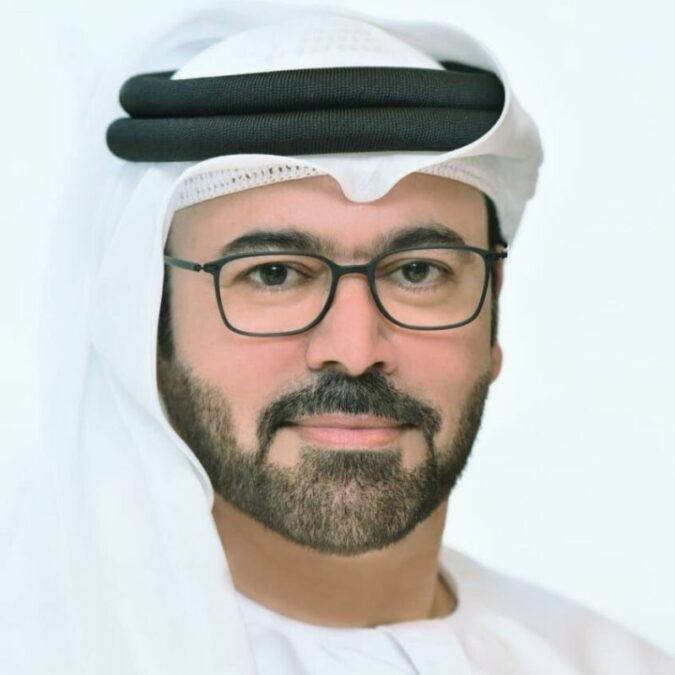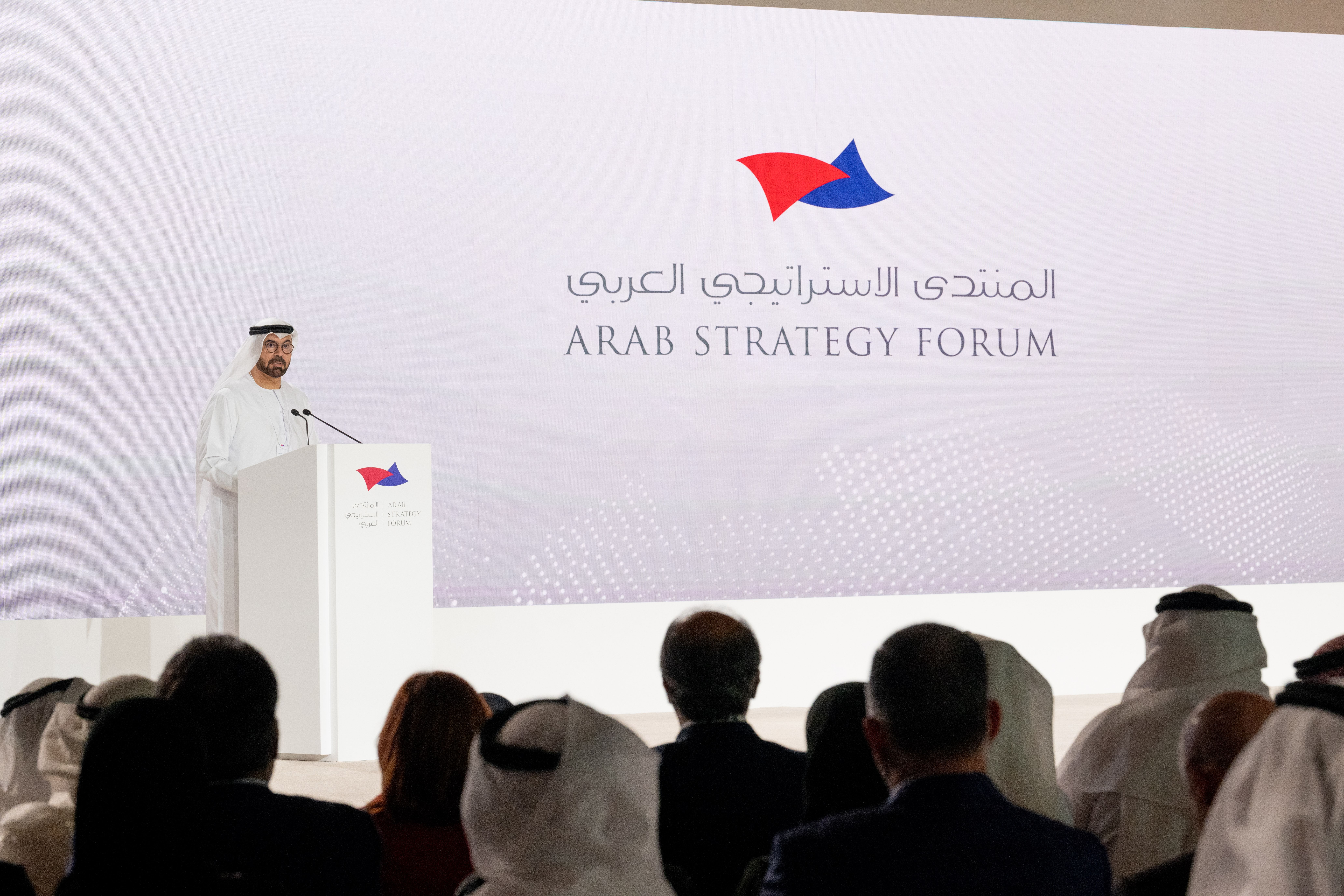DUBAI — Three major shifts are shaping the region and the world in the coming phase, said Mohammad bin Abdullah Al Gergawi, Minister of Cabinet Affairs and Chairman of the Arab Strategy Forum (ASF).
He added that the timing of the forum this year is critical. “Today, as we speak, we understand that a lot of convictions have changed profoundly, and questions about the international system’s inability to tackle crises have increased,” he said.
“At this historical phase, it is imperative for our region to have a pivotal role in managing its own crises, resolving its own disputes, and building bridges among its countries to build a better future for its people,” Al Gergawi emphasized.
“Twenty years ago, His Highness Sheikh Mohammed bin Rashid Al Maktoum, Vice President, Prime Minister, and Ruler of Dubai, stressed in this forum the need to find a just solution for the Palestinian cause based on international law, and an urgent resolution for the Iraq situation within a framework that secures its unity,” he said.

“Today, 20 years after discussing the positive impact of globalization and the importance of establishing an international system based on common cultural, moral, and economic values, we have reached a phase where basic human values such as the protection of human lives, the protection of children, and their right to live in safety and security have become subject to disagreement, division, and skepticism,” he continued.
“The values of human rights suit some people more than others, and the basic standards apply more to some people than others, in accordance with international agendas.”
The Palestinian cause
Al Gergawi noted that the most prominent shift in the region is the unprecedented ramifications of the Palestinian cause and the war in Gaza, which has claimed more than 22,000 lives, left over 57,000 casualties, destroyed 60 percent of the infrastructure in Gaza, and displaced 90 percent of the population.
The minister labeled the war as “an unprecedented humanitarian disaster in decades. Despite the horrors of this war and the efforts of many countries to stop it, we need to reflect on it.”
The minister questioned, “Will the Gaza war be the catalyst for lasting peace in the region and the establishment of a Palestinian state, or will it mark the beginning of an extended war on various new fronts in the region? Will it be the last war or the starting point of new wars?”
Rising influence of the Gulf
Al Gergawi said that the second shift witnessed in the region is the rise of Gulf countries as major economic powers and influential global partners actively engaging in mediating solutions for political, economic, climatic, and humanitarian issues.
“The UAE’s recent successful hosting of COP28 underscores the pivotal role played by Gulf countries in shaping the world’s environmental agenda,” he added.
Qatar’s hosting of the 2022 World Cup and Saudi Arabia’s selection for the 2034 World Cup cement the Gulf’s significant role in shaping the global sports agenda.
“The hosting of Expo 2020 Dubai and plans for Expo Riyadh 2030 highlight the GCC’s significant contribution to formulating the world’s cultural agenda,” Al Gergawi pointed out.
“The Gulf countries have emerged as influential contributors in shaping both the political and economic dimensions of the global map. They maintain equilibrium by participating in major economic blocs and embracing a novel principle in international relations centered on openness to all. Additionally, they expand their circle of investment relations and forge partnerships built on mutual benefit for all involved parties.
Today, the Gulf countries stand as a global investment powerhouse, with their sovereign funds totaling an impressive $3.8 trillion – the largest in the world and comprising 34 percent of the global funds.”
In 2023, the UAE and Saudi Arabia joined the BRICS, alongside Egypt, Ethiopia, and Iran, raising the combined economies of the BRICS nations to approximately $28 trillion.
Al Gergawi said that this year’s edition of the ASF comes more than two decades after its inception in 2001, during which the international landscape has witnessed rapid geopolitical and economic changes, the emergence of new alliances, and an escalation in international polarization that threatens the positive outcomes of ‘globalization.’ This also includes the repercussions affecting the climate and threatening our food and water security.
“Today, we gather in an attempt to monitor new trends, to imagine what the next decade will bring in a world that is experiencing constant technological transformation, raising questions about its future risks. A world witnessing new economic alliances, endless trade conflicts, and strange contradictions,” he said.
However, he noted that not all the global changes have been negative. “In fact, most of the global trends are positive if analyzed in terms of economic value. Countries have developed and lifted millions out of poverty. Artificial Intelligence is doubling productivity, in addition to medical breakthroughs, social, economic, and political stability that many countries are enjoying.”
He added, “Undoubtedly, we are witnessing more good than evil. Peace lasts longer than war, and hope is more prevailing than despair. Yet, we are asking these questions in this forum to better understand the course of events and shape a better world for us and our future generations.”
Under the theme “The Political and Economic State of the Arab World,” the ASF brings together a host of strategic experts and thought leaders from around the world to forecast regional and global developments.








